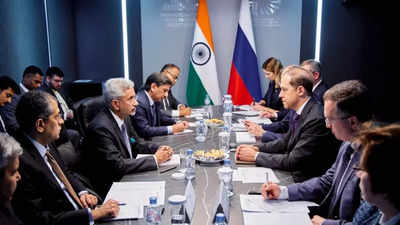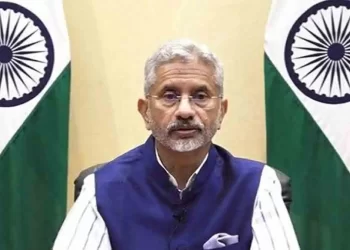A number of “very important” agreements pertaining to the development of the Kudankulam nuclear power plant’s future power-generating units were signed by Russia and India on Tuesday.
Following a “comprehensive and productive” meeting on bilateral economic cooperation with Deputy Prime Minister Denis Manturov, External Affairs Minister S Jaishankar made the statement.
“We signed some very important agreements pertaining to the future units of the Kudankulam nuclear project,” he remarked, speaking to the Indian diaspora in Moscow. For the second year in a row, Prime Minister Narendra Modi is not attending the yearly summit in Russia; thus, Jaishankar is spending five days in Moscow meeting with Russian officials.
With Russian technical support, Tamil Nadu is building the nuclear power facility Kudankulam. In March 2002, the work got underway. The Kudankulam NPP’s first generating unit has been continuously running at its 1,000 MW design capacity since February 2016. Russian state media reports that the plant will begin to run at full capacity in 2027.
After the meeting with Manturov, Jaishankar tweeted, “A comprehensive and productive meeting with Deputy Prime Minister Denis Manturov of Russia on our bilateral economic cooperation. Noted the significant progress in trade, finance, connectivity, energy, civil aviation and nuclear domains.”
“Appreciated the greater focus on exploring new opportunities. Discussed making our cooperation more balanced and sustainable in different dimensions,” he said. “Finalised the programme of cooperation on the Russian Far East. Expect to hold an early meeting of EaEU-India FTA negotiators. Will jointly organise connectivity events across land and maritime corridors,” Jaishankar said.
“Witnessed signing of agreements on nuclear power and in areas of medicines, pharmaceutical substances and medical devices,” he said. Jaishankar also said the two sides have agreed that their negotiating teams will meet by January-end to start in-person negotiations on free trade agreement between India and the Eurasian Economic Zone.
To a question on payment problem between Russia and India, he said in “an unusual situation, we are trying to find ways by which banks deal with each other”.
“People are unclear what is happening…If you don’t have a full picture or you don’t have confidence, people hold back. Those who have banking relationships, do business with Russia can educate people about good banks, safe routes,” he said. On Wednesday, Jaishankar will meet his Russian counterpart Sergey Lavrov to discuss bilateral, multilateral, and international issues.
Source:IE







 Finance
Finance







